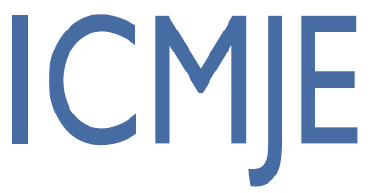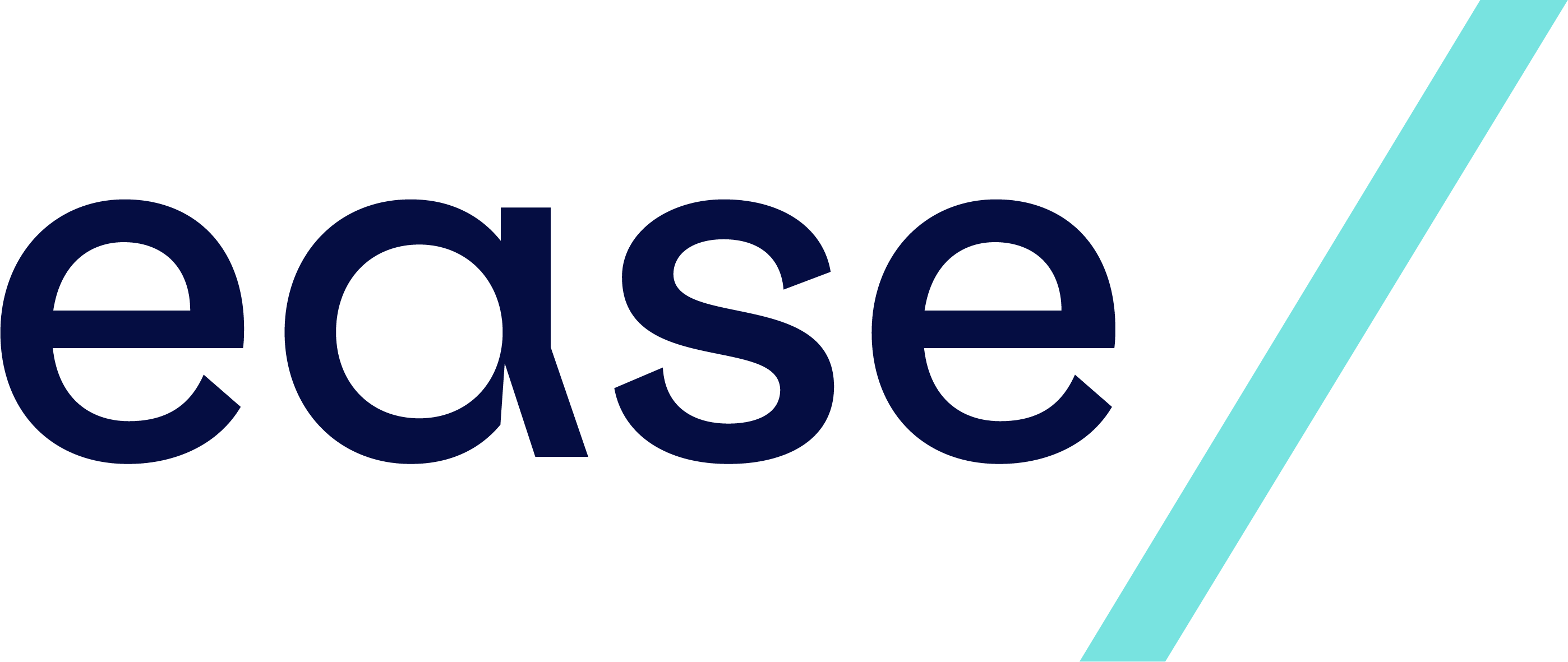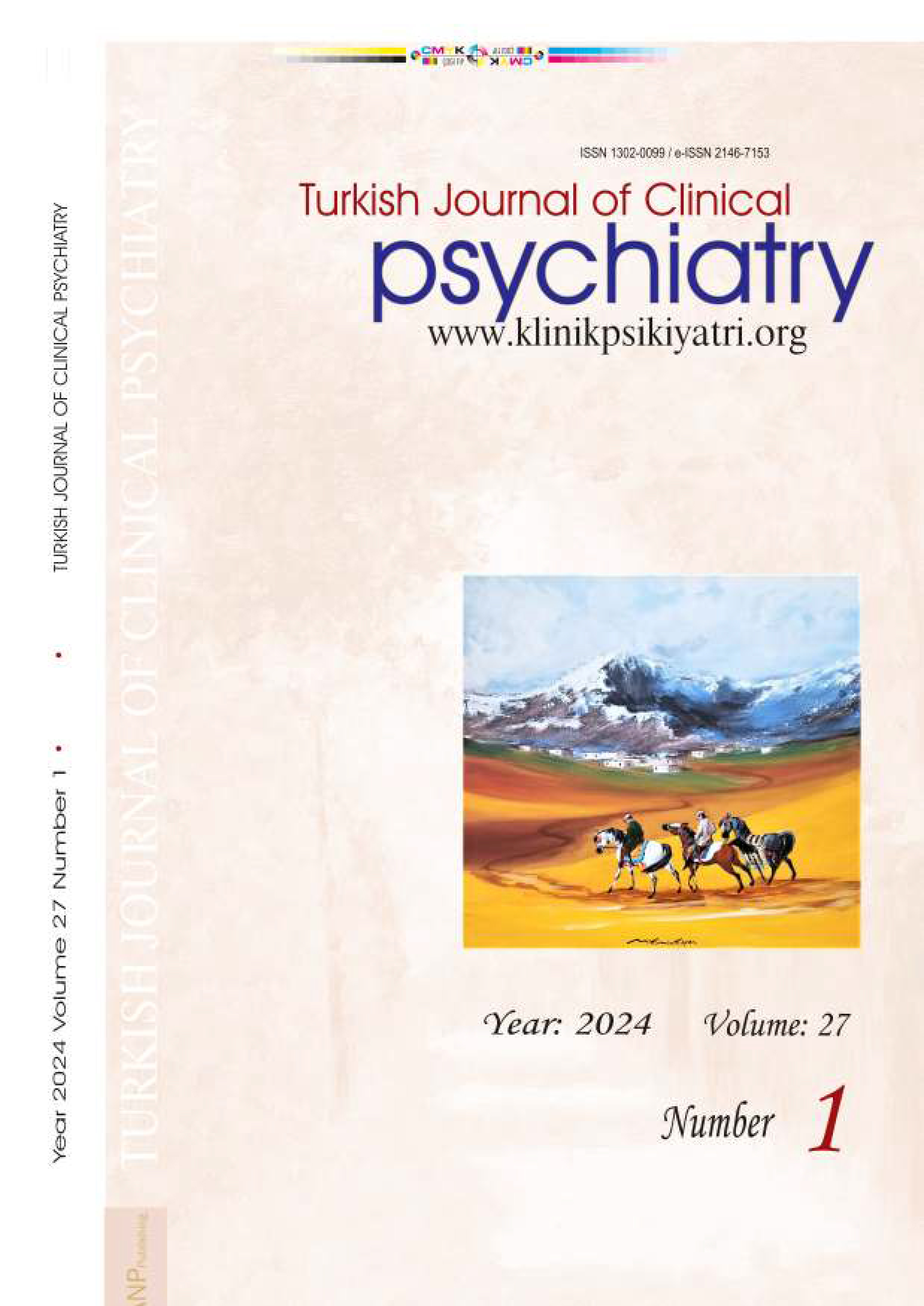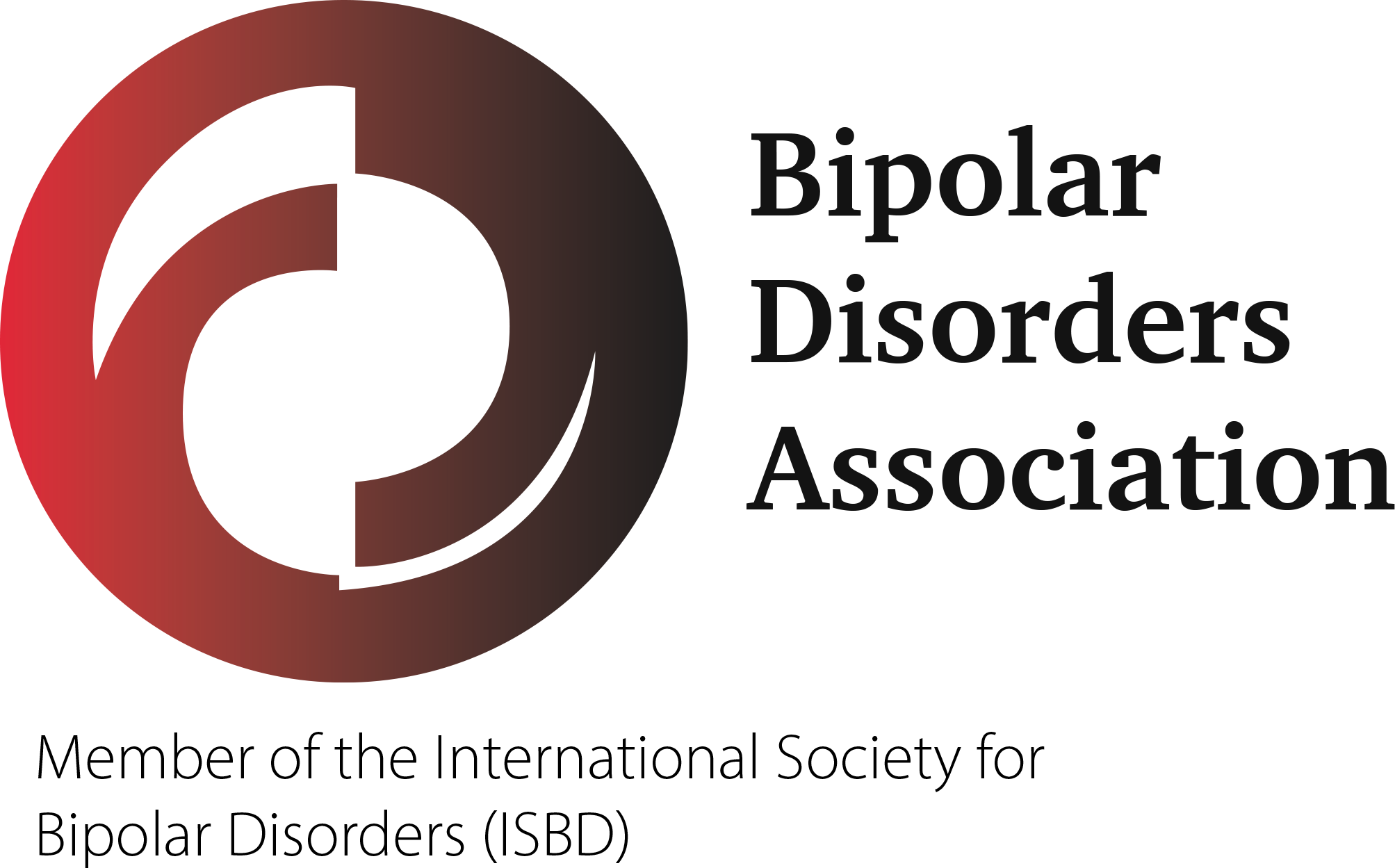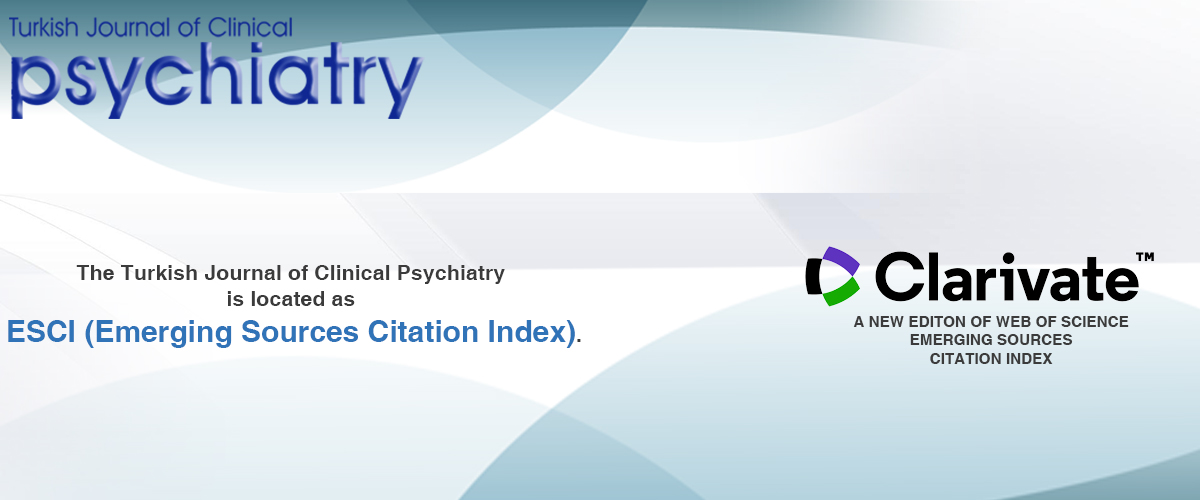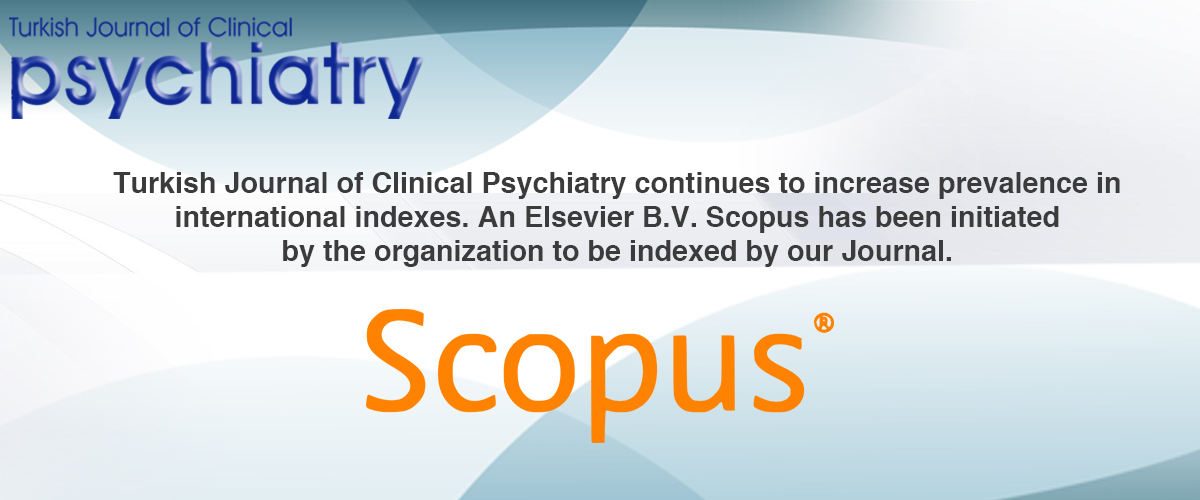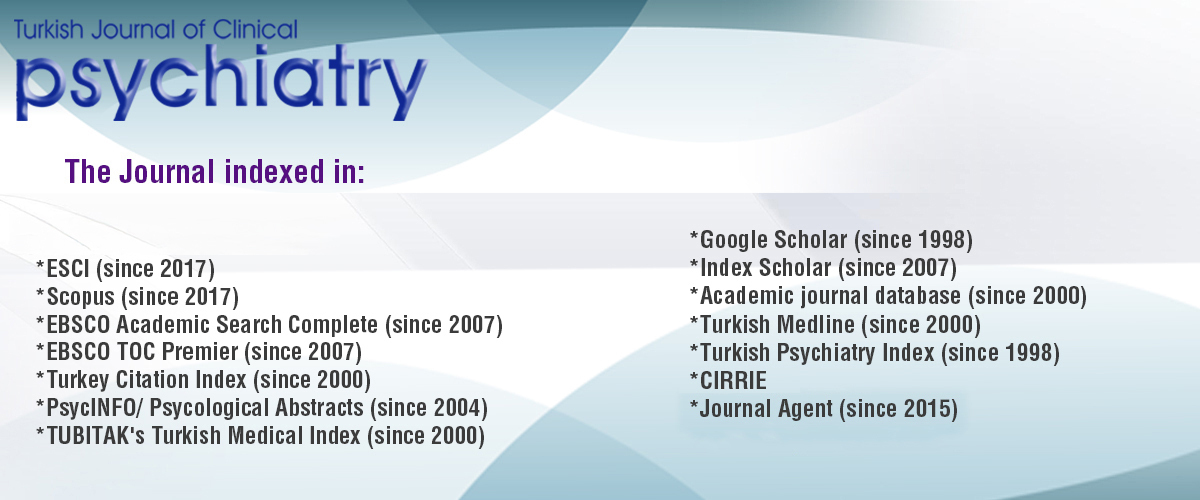





RESEARCH AND PUBLICATION ETHICS
Editorial and Publication Process
Turkish Journal of Clinical Psychiatry is based on independent, unbiased, double-blinded peer-review reports in the evaluation of the articles. The submitted articles are evaluated by at least two Advisory Board members who are experts in the field. The articles that completed their advisory board evaluations are discussed in the Editorial Board. The editorial board is competent to publish, send back for revision, publish by editing or not publish. The editorial and publication processes of our journal have been formatted according to the guidelines of organizations International Committee of Medical Journal Editors (ICMJE), World Association of Medical Editors (WAME), Council of Science Editors (CSE), Committee on Publication Ethics (COPE), European Association of Science Editors (EASE) and National Information Standards Organization (NISO). The editorial and publication processes of the journal are conducted following the Principles of Transparency and Best Practice in Scholarly Publishing (doaj.org/bestpractice). The originality, methodology, and importance of the submitted article are evaluated by the members of the Editorial Board. Following this process, to provide an unbiased review process, each article is evaluated by at least two unbiased, independent reviewers who are experts in that particular field. Reviewers are uninformed about the identity of the authors, and vice versa.
The Editorial Board is the final authority in the decision-making process for all submissions.
The arrival dates and acceptance dates of the manuscripts are specified in the number of manuscripts published. On the journal’s web page, all the articles are in full-text versions on the front and sent in Turkish and English summary versions. The content is made available for free access on the internet page of the journal following the completion of the broadcast period. The authors are not subscribed to the journal, but the journal published by them is not sent to them.
The publishing rights of the articles publi
shed in our magazine belong to ANP Private Health Services. Authors are not paid royalties.
Authors should transfer the copyright of the publication to Klinik Psikiyatri Dergisi. According to the Copyright Act, the right of publishing accepted to be published belongs to the publisher institution. This period becomes binding with the acceptance of the manuscript. Turkish Journal of Clinical Psychiatry uses Creative Commons licensing terms.
The scientific and legal responsibility of the published articles belongs to their authors. Any opinions and views expressed in the articles published by the journal are the views and opinions of the author(s), and not views of or endorsed by the Turkish Journal of Clinical Psychiatry, editors and editorial board. The editors, editorial board, and publisher disclaim any responsibility or liability for such materials.
Research Ethics
Ethical Board Approval arranged in the framework of the World Medical Association Declaration of Helsinki “Ethical Principles for Medical Research Involving Human Subjects (October 2013, www.wma.net) is obligatory for experimental, clinical, medication research and case reports with any intervention. The report of ethical approval could be requested from the authors, if necessary. For experimental studies on humans, a statement that the participants are informed about the applied procedure and taken their consent and detailed information about the procedure should be presented in the main text. Ethical board approval in the framework of the Helsinki Declaration is also required for research on experimental animals. Definition of the procedure applied on experimental animals and a statement of effects of this procedure on animals should be frankly presented in the main text.
The name of the institution where the approval is received, the number and the date of the approval, and a statement about informed consent should be presented in Methods. Confidentiality of the identity of the patients or participants is the responsibility of the authors. In the case of using the photo of the patient, a signed permit taken from the patient or his/her legal representative must be sent to the journal along with the article.
The Editorial Board will act within the scope of COPE guidelines if there is an allegation or suspicion of plagiarism, citation manipulation or data fraud for a submission. All submissions are screened by a similarity detection software iThenticate.
If there is a citation from the previously published articles, the author of the article must have the right to publish the article and have written consent from the authors and state it in the article. The consent document must be sent to the editorial board along with the article. Reviewers are expected to comment on potential research or publication misconduct such as unethical research design, duplication, plagiarism, etc.
The Editorial Board of the journal handles all appeal and complaint cases within the scope of COPE guidelines. Authors could contact with Editorial Board for any rejection or complaint. If necessary, Editorial Board will appoint an unbiased agent for issues that can not resolve on their own. In the process of rejection and complaints, the final decision will be given by Editor-in-chief.
Authors
Each listed as an author should fulfil the authorship criteria recommended by the International Committee of Medical Journal Editors (ICMJE). The ICMJE recommends that authorship be based on the following 4 criteria:
- Substantial contributions to the conception or design of the work; or the acquisition, analysis, or interpretation of data for the work;
- Drafting the work or revising it critically for important intellectual content;
- Final approval of the version to be published;
- Agreement to be accountable for all aspects of the work in ensuring that questions related to the accuracy or integrity of any part of the work are appropriately investigated and resolved.
The authors must notify the written approval of these four rules in the Copyright Transfer Form. Those who do not meet all four criteria should be acknowledged on the manuscript’s title page. If the editorial board suspects a case of “gift authorship,” the submission will be rejected without further review.
Authors should be fully open in matters such as direct or commercial links, and financial support in their work. If authors have this sort of relationship, they have to tell it how it is related, or else they have to declare that they have no relation. Our journal adopts WAME's definition of conflict of interest.
For the submitted articles to be processed immediately, they must comply fully with the written rules.
Reviewers
The reviewers are expected to conduct the review process themselves and if a review report is sent by another name (real or fiction), the review will be deemed invalid and the relationship between the reviewer and the journal will be terminated. Therefore, the Turkish Journal of Clinical Psychiatry may request from the reviewers confirm their identity, if necessary.
To provide unbias and to prevent conflict of interest, we request that the reviewers should consider the statements presented below and if at least one statement is compitable for the reviewer, he/she must contact with editorial office;
-Being in direct competition with one of the authors
-Being a colleague or partner of one of the authors
-Being in a position in which there is a possibility to take advantage or abuse the research of the authors
-Being legally prevented due to national sanctions
-Being in a position preventing declaring an objective opinion about the article
Because the Turkish Journal of Clinical Psychiatry has a double-blinded peer-review process, it could be difficult that the reviewer detects the statements listed above. However, any suspicion or concern about the statements should be reported to the editorial office. The editorial office will evaluate the reported concern. The potential conflict of interest among editors, authors and reviewers is approached by the Editorial Board following COPE and ICMJE guidelines.
The identity of the reviewer is confidential, except for the editorial board members. It is recommended that the reviewers should avoid acts that disclose their identity, such as sending a review report directly to the authors or giving information disclosing their identity in the report. Information, data or opinions obtained from reviewing process should be kept secret and not used for competition. It is also requested that the reviewers should not discuss the article with their colleagues before publication.
The reviewers should evaluate the article objectively and present a fair, clear and constructive review, not personal criticism. Reviews presented in the report should be explained and supportive scientific data should be presented.
The reviewers should review the article within the time range given by the journal. If he/she can not review within the time range or can review with delay, he/she should contact the editorial office. No intentional or unnecessary delay is welcomed.
The reviewers should state compitable citations which are not included in the article. However, in the case of over-suggestion of citations (especially their articles), the editors reserve the right to intervene. Moreover, the editors have the right to exclude suggested citations for the sake of preserving the anonymity of the reviewers, if necessary.
It is expected that the reviewers contact the editorial board in the case of noticing at least one statement listed below:
- Plagiarism
- Duplicate publication
- Parallel submission
- Data fabrication / falsification
- Image manipulation
- Incorrect authorship
- Author conflict of interest
- Unethical research practices
- Content that could be considered offensive
The journal will act following COPE guidelines to preserve the anonymity of reviewers, in case of denunciation of statements listed above.
Reviewing Process
Turkish Journal of Clinical Psychiatry is based on independent, unbiased, double-blinded peer-review reports in the evaluation of the articles. The originality, methodology, and importance of the submitted article are evaluated by the members of the Editorial Board. Following this process, to provide an unbiased review process, each article is evaluated by at least two unbiased, independent reviewers who are experts in that particular field. Reviewers are uninformed about the identity of the authors, and vice versa. If there is a conflict between reviewers, the article will be evaluated by an independent reviewer. The reviewers choose the suited option to give a final decision after filling the form presented via Journal Agent software. Reviews and revision requests may be written in the suited text box or uploaded as a text file. Acts disclosing reviewers’ own identity should be avoided. Finally, the reviewers should write a text comprising the relevant reviews and opinions about the article to the Editor. This text is visible only to Editorial Board members.
The final decision authority for all submitted articles belongs to Editorial Board
Publication Politics
Turkish Journal of Clinical Psychiatry includes research, reviews, brief reports, and letter to the editor reports in the fields of Psychiatry, Clinical Psychology, Psychopharmacology and psychiatry issues of neurology.
Turkish Journal of Clinical Psychiatry, published in Turkish or English is an online, peer-reviewed open-access journal. This is an open-access journal which means that all content is freely available without charge to the user or his/her institution. Users are allowed to read, download, copy, distribute, print, search, or link to the full texts of the articles in this journal without asking prior permission from the publisher or the author. This is following the BOAI definition of open access.
Turkish Journal of Clinical Psychiatry does not request fees at any stage of the publication process.
Turkish Journal of Clinical Psychiatry, which has been published since 1998, has been continuing its publication life through ANP Publishing in the Private Therapy Medical Center since September 2015. The journal, published four times a year, accepts Turkish and English articles.
The boards of our journal show the functioning according to the Directive of the Turkish Journal of Clinical Psychiatry. Click here to see the "Directive of Turkish Journal of Clinical Psychiatry" on the operation principles of our boards.
Accepted articles are given DOI numbers starting from 2016. Digital Object Identifier (DOI) System is a unique alphanumeric string assignment system that provides permanent and easy access to content in the digital environment. Articles with DOI names and included in the system acquire rapid global accessibility and the authors gain a publication advantage. This gives academicians an advantage over time. The DOI System is an ISO international standard and is managed by the International DOI Foundation. Those authors whose articles have been published in our journals registered with the DOI System are enabling rapid access to their articles by the national and international scientific public and as such also increasing the citation potential of their articles.
Our journal is sending and tracking articles through the Journal Agent system.
The Journal indexed in;
- DOAJ (since 2018)
- ESCI (since 2017)
- Scopus (since 2017)
- EBSCO Academic Search Complete (since 2007)
- EBSCO TOC Premier (since 2007)
- Turkey Citation Index (since 2000)
- PsycINFO/ Psychological Abstracts (since 2004)
- TUBITAK's Turkish Medical Index (since 2000)
- Google Scholar (since 1998)
- Index Scholar (since 2007)
- Academic journal database (since 2000)
- Turkish Medline (since 2000)
- Turkish Psychiatry Index (since 1998)
- CIRRIE
- Index Copernicus
- Journal Agent (since 2015)

